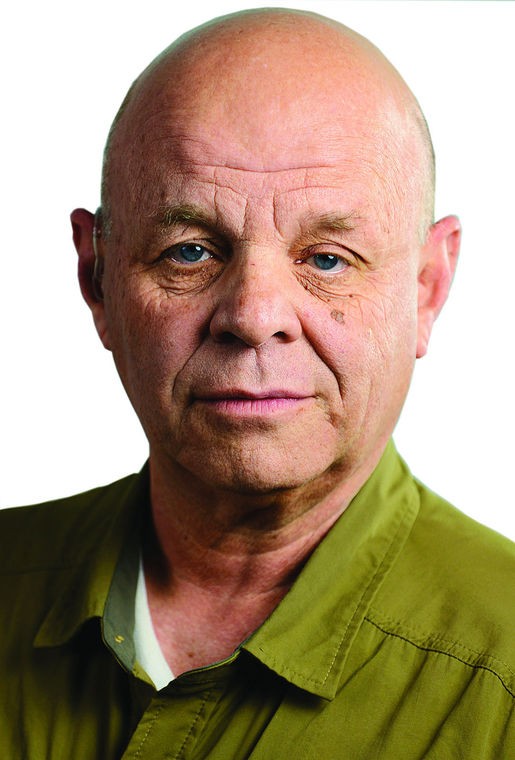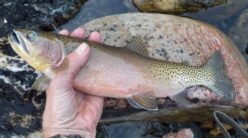Starting in January of each year, I start getting ready for the fall hunting season. There really is a lot to think about, including gear that needs to be inspected to make sure it is ready for the next season.
First, I make sure all my rifles and pistols that were carried during last season are cleaned and stored in the gun vault. Next, I examine my tent and make sure it is still in good shape and all the zippers work.
So far, I have had to have a firm in Idaho Falls replace the zippers. I had them replace the old zippers with a little heavier ones to see if they would last longer.
I also take a good look at my boots to make sure they are still waterproof and that the lugs aren't too worn. I walk a lot when hunting, so my boots have to be comfortable and in good repair.
I also examine my jackets, socks, long underwear, pants, gloves, sleeping bag, sleeping pad and head gear. Anything that needs to be repaired or replaced is taken care of during the winter, spring and summer.
Early in the spring, I start sighting in the rifles I use for hunting, tightening and applying Gun-Tite to scope bases and rings, and I start scouting the areas we like to hunt.
During August, I review my to-do list, including making sure my pickup truck is serviced and ready to go, as well as packing a few things in my large and small backpacks so I won't forget them.
About a week before October, I make sure I have enough food, water and miscellaneous supplies for a couple three- or four-day trips.
The folks in our hunting group try to pack our large backpacks with no more than about 35 or 40 pounds of gear and our small backpacks with about 15 pounds, excluding our firearms and ammunition.
In order to stay within those constraints, we pack what we have learned we will need, but we also pack many things that have more than one purpose, which helps lighten the load. The large backpack usually contains personal gear, plus some of the food and group equipment. The small pack, or daypack, is stocked each day with water, personal snacks, first aid kit, rain gear, compass or GPS, topographic map of the area, field dressing kit, etc.
In a couple of areas we hunt, we can drive into our camping area, while we have to pack in to our campsite in another area. We want to have what we need to stay oriented, deal with emergencies, handle sudden drops in temperature, inclement weather and unforeseen delays that might occur.
My daypack contains:
- 25 to 30 feet of light cord
- Binoculars
- Compass
- Hand warmers
- Emergency blanket (foil type)
- 50 feet of climbing quality rope
- First Aid Kit
- Topographic map
- Energy bars
- Matches
- Light fleece jacket
- Personal medicine
- Small high-intensity flash lights
- Whistle
- Collapsible saw
- Two skinning knives
- Sharpening stones
- Surgical gloves
- Head mounted flashlight
- Rain coat
- Tarp
- Two bottles of water
We also carry cellphones and two-way radios in case of an emergency. One word of caution though — don't use cellphones or two-way radios unless there is an emergency. The sound of the human voice bothers wildlife, and the ring tones of cellphones are enough to make game clear out of the area.
You will also be in the dog house with your hunting partners if you use a cellphone or two-way radio for anything but an emergency. You can turn the ring tone off on your cellphone and just check it periodically, so even friends and spouses won't ruin the hunt if they call. However, cellphones don't have any service in a lot of the places we hunt.
All of us in our group carry things that others don't, but our experience over the years pretty much determines what we each carry in our small daypack, and each year most of us look at what we didn't need and what we think we ought to add for next year while keeping the daypack to 15 pounds.
Make your own list of what you want on your hunting trip, and then weigh it to see what you are subjecting yourself to. If it weighs too much you are going to have a less than good time.
You should also be in good physical condition if you are going to participate in hunting activities. Have a personal trainer help you develop a fitness program for yourself if you aren't sure what exercises will best prepare you for hunting.
If you bag your deer or elk, the really hard work begins and you have to get it out to where you left your vehicle. The weight you have to deal with can be overwhelming if you don't plan your trip carefully.
Smokey Merkley was raised in Idaho and has been hunting since he was 10 years old. He was a member of the faculty of Texas A&M University for 25 years. There he taught orienteering, marksmanship, self-defense, fencing, scuba diving and boxing. He was among the first DPS-certified Texas Concealed Handgun Instructors. He can be contacted at mokeydo41245@hotmail.com.



